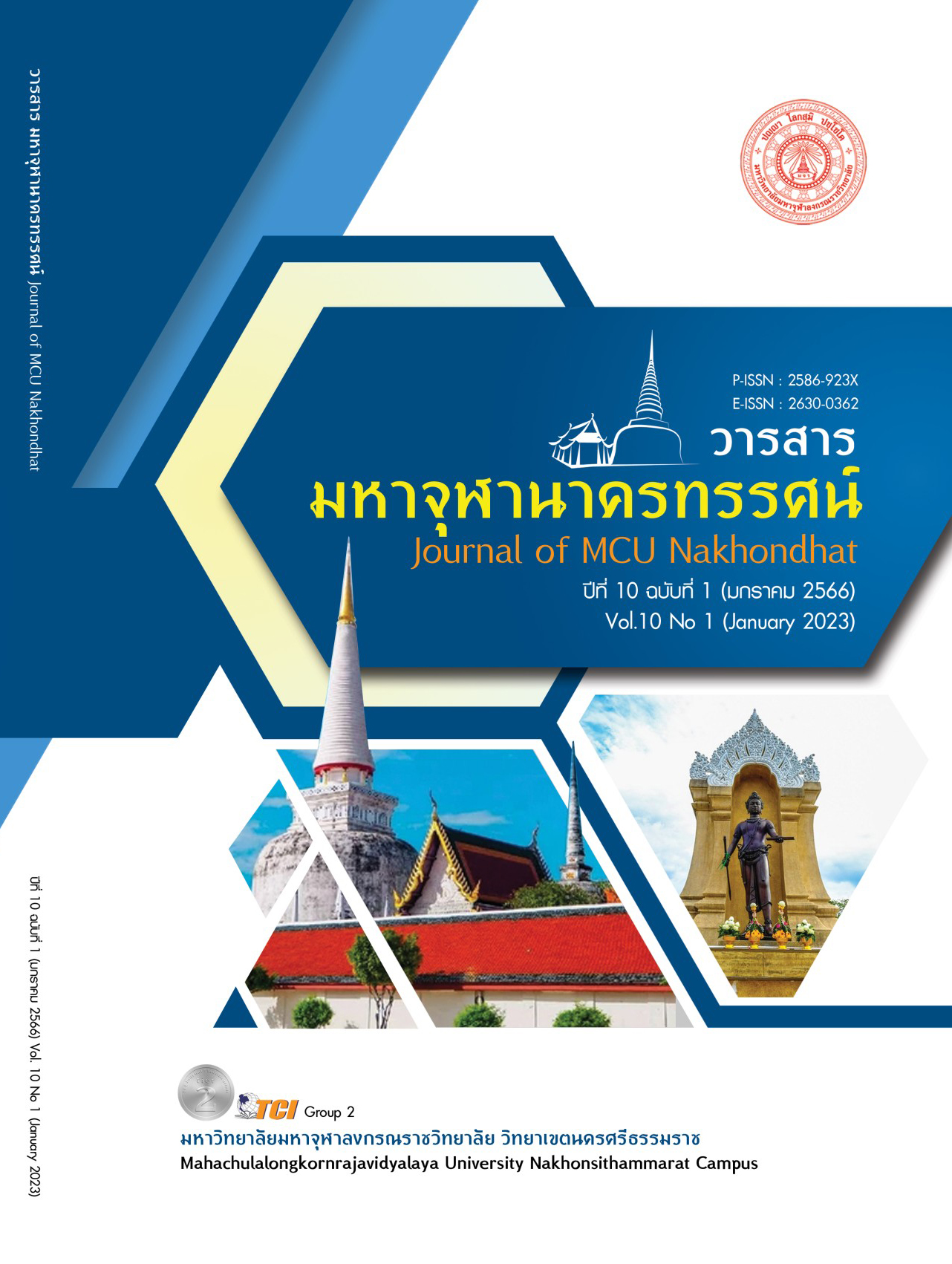MARKETING FACTORS AFFECTING DECISION MAKING PROCESS OF ELECTRIC VEHICLES
Main Article Content
Abstract
The objectives of this research article were to study the marketing factors affecting purchase decision process the electric vehicle (EV). Using the survey research model. The sample used in this study was 400 Consumers who are interested in electric cars and live in Bangkok. Using an online questionnaire as a data collection tool. The statistics used in the data analysis were frequency, percentage, mean, standard deviation, T - test, F - test (One Way ANOVA), and enter multiple regression. The statistical significance level was set at the 0.05 level. The result of this study showed that the sample consumers gave importance to the market factor. Product acceptance factor and the overall electric vehicle (EV) purchase decision process are at a high level. The hypothesis testing revealed that 1) Consumers with different personal factors had no difference in the decision - making process for electric vehicle (EV) purchase; 2) Marketing factors were products and marketing promotions and 3) The product acceptance factor was intrinsic motivation ease of use and perceived benefits Influence consumers' decision to purchase an electric vehicle (EV) in Bangkok. Suggestions: Entrepreneurs should focus on the durability of electric vehicles (EVs), have Quick Charge charging points at various points thoroughly, and have a variety of media channels to reach customers such as televisions, websites, Facebook, Instagram, etc. Free maintenance in the first 6 months, after-sales service of the center. Electric vehicle (EV) batteries are guaranteed for 10 years or 100,000 kilometers to give consumers peace of mind and concerns about the use of electric cars are gone.
Article Details

This work is licensed under a Creative Commons Attribution-NonCommercial-NoDerivatives 4.0 International License.
References
กระทรวงพลังงาน. (2558). แผนอนุรักษ์พลังงานปี พ.ศ. 2558-2579. เรียกใช้เมื่อ 22 มิถุนายน 2565 จาก http://www.eppo.go.th/images/POLICY/PDF/EEP2015.pdf
กัลยา วานิชย์บัญชา และฐิตา วานิชย์บัญชา. (2561). การใช้ SPSS for Windows ในการวิเคราะห์ข้อมูล (พิมพ์ครั้งที่ 31). กรุงเทพมหานคร: สามลดา.
ณรงค์ชัย ศรีขวัญเจริญ และคณะ. (2557). ปัจจัยที่มีอิทธิพลต่อการตัดสินใจเลือกใช้รถยนต์ไฟฟ้า. ใน สารนิพนธ์วิศวกรรมศาสตรมหาบัณฑิต สาขาวิศวกรรมโยธา. มหาวิทยาลัยเกษตรศาสตร์.
พิทยาภรณ์ วงษ์กิตติวัฒน์. (2559). ปัจจัยที่มีอิทธิพลต่อการตัดสินใจซื้อรถยนต์ไฟฟ้าของผู้บริโภควัยทำงานในกรุงเทพมหานคร. ใน สารนิพนธ์บริหารธุรกิจมหาบัณฑิต สาขาบริหารธุรกิจ. มหาวิทยาลัยกรุงเทพ.
ฟรอสต์ แอนด์ ซัลลิแวน. (2564). อนาคตของรถยนต์ไฟฟ้าในเอเชียตะวันออกเฉียงใต้ (The Future of Electrified Vehicles). เรียกใช้เมื่อ 25 มกราคม 2565 จาก https://mgronline.com/motoring/detail/9640000012115
ภราดร ตุ่นแก้ว. (2563). ปัจจัยที่มีผลต่อการตัดสินใจซื้อรถยนต์ไฟฟ้าแบรนด์ FOMM ONE ในเขตกรุงเทพมหานคร. ใน สารนิพนธ์ หลักสูตรบริหารธุรกิจมหาบัณฑิต สาขาวิชาการตลาด. มหาวิทยาลัยศรีนครินทรวิโรฒ. เข้าถึงได้จาก สารนิพนธ์ หลักสูตรบริหารธุรกิจมหาบัณฑิต สาขาวิชาการตลาด
วรลักษณ์ พงษ์พูล. (2563). กระบวนการตัดสินใจซื้อรถยนต์ไฟฟ้า (EV) ของคนทำงานในจังหวัด กรุงเทพมหานคร. ใน วารสารวิจัย. มหาวิทยาลัยรามคำแหง.
วราภรณ์ หัตถกี และวีรินทร์ หวังจิรนิรันดร์. (2555). ทัศนคติของกลุ่มผู้ใช้และสนใจรถยนต์ไฟฟ้าไฮบริดที่ส่งผลต่อการตัดสินใจเลือกใช้รถยนต์ไฟฟ้าไฮบริด. วารสารพลังงานวิจัย , 9(2), 12-21.
ศุภวัจน์ รุ่งสุริยะวิบูลย์ และคณะ. (2562). การวิเคราะห์พฤติกรรมการยอมรับยานยนต์ไฟฟ้าของผู้บริโภค. กรุงเทพมหานคร: สำนักงานนโยบายและแผนพลังงาน.
สิริพัฒน์ ดีขำ. (2559). ปัจจัยที่มีอิทธิพลเชิงบวกต่อความตั้งใจที่จะซื้อรถยนต์ไฟฟ้าประเภทแบตเตอรี่ (BEV) ของผู้เข้าร่วมงาน Bangkok International Motor Show ครั้งที่ 38 ในกรุงเทพมหานคร. ใน สารนิพนธ์บริหารธุรกิจมหาบัณฑิต สาขาบริหารธุรกิจ. มหาวิทยาลัยกรุงเทพ.
Kotler, P. (2016). Marketing Management: Analysis, Planning, Implementation, and Control (15th Global ed.)Upper Saddle River. NJ: Prentice-Hall.
Venkatesh, V. & C. Speier . (1999). Computer technology training in the workplaces: A longitudinal investigation of the effect of mood. Organization Behavior and Human Decision Process, 79(1), 1-28.


